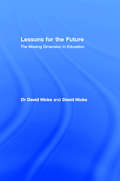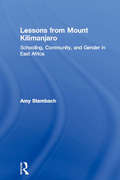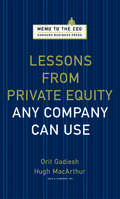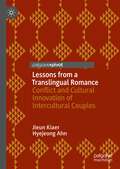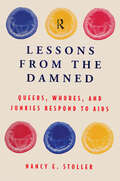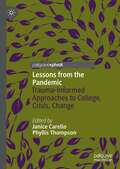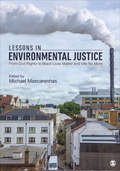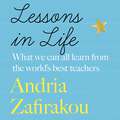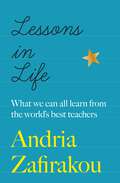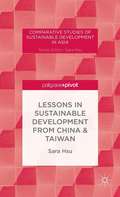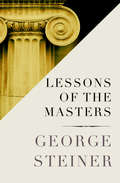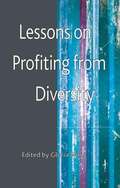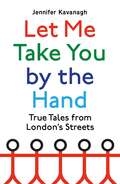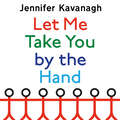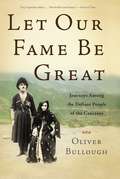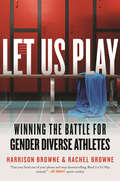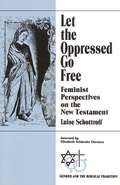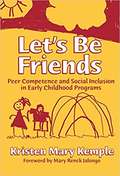- Table View
- List View
Lessons Learned from the Fukushima Nuclear Accident for Improving Safety and Security of U.S. Nuclear Plants: Phase 2
by Engineering Medicine National Academies of SciencesThe U.S. Congress asked the National Academy of Sciences to conduct a technical study on lessons learned from the Fukushima Daiichi nuclear accident for improving safety and security of commercial nuclear power plants in the United States. This study was carried out in two phases: Phase 1, issued in 2014, focused on the causes of the Fukushima Daiichi accident and safety-related lessons learned for improving nuclear plant systems, operations, and regulations exclusive of spent fuel storage. This Phase 2 report focuses on three issues: (1) lessons learned from the accident for nuclear plant security, (2) lessons learned for spent fuel storage, and (3) reevaluation of conclusions from previous Academies studies on spent fuel storage.
Lessons Learned from the Fukushima Nuclear Accident for Improving Safety of U.S. Nuclear Plants
by Committee on Lessons Learned from the Fukushima Nuclear Accident for Improving Safety Security of U.S. Nuclear PlantsThe March 11, 2011, Great East Japan Earthquake and tsunami sparked a humanitarian disaster in northeastern Japan. They were responsible for more than 15,900 deaths and 2,600 missing persons as well as physical infrastructure damages exceeding $200 billion. The earthquake and tsunami also initiated a severe nuclear accident at the Fukushima Daiichi Nuclear Power Station. Three of the six reactors at the plant sustained severe core damage and released hydrogen and radioactive materials. Explosion of the released hydrogen damaged three reactor buildings and impeded onsite emergency response efforts. The accident prompted widespread evacuations of local populations, large economic losses, and the eventual shutdown of all nuclear power plants in Japan. Lessons Learned from the Fukushima Nuclear Accident for Improving Safety and Security of U. S. Nuclear Plants is a study of the Fukushima Daiichi accident. This report examines the causes of the crisis, the performance of safety systems at the plant, and the responses of its operators following the earthquake and tsunami. The report then considers the lessons that can be learned and their implications for U. S. safety and storage of spent nuclear fuel and high-level waste, commercial nuclear reactor safety and security regulations, and design improvements. Lessons Learned makes recommendations to improve plant systems, resources, and operator training to enable effective ad hoc responses to severe accidents. This report's recommendations to incorporate modern risk concepts into safety regulations and improve the nuclear safety culture will help the industry prepare for events that could challenge the design of plant structures and lead to a loss of critical safety functions. In providing a broad-scope, high-level examination of the accident, Lessons Learned is meant to complement earlier evaluations by industry and regulators. This in-depth review will be an essential resource for the nuclear power industry, policy makers, and anyone interested in the state of U. S. preparedness and response in the face of crisis situations.
Lessons Learned from the Great East Japan Earthquake: Birth Outcomes in a Catastrophe in a Highly Aged Society (SpringerBriefs in Population Studies)
by Honami YoshidaThis book provides insights into the enormous impact of fetal and newborn loss in the aftermath of the natural disasters that Japanese society constantly has to face. It first reveals effect of the Great East Japan Earthquake in 2011 on the next generation and reproductive attitudes and shows that prenatal care strategies for emergencies had not been established by any local government in Japan. With continuing research on birth outcomes in the area surrounding the catastrophe, the authors emphasize the importance of the pre-hospital obstetric care team in disaster response and highlight the inequality in health care in a highly aging society like Japan, where perinatal health care is given lower priority than elderly care.Following the creation of a specialized project for pre and postnatal care the authors conducted surveys on how community preparedness in maternal and child health for post-disaster areas impacted population changes.This book is a valuable resource for researchers who are interested in the association between rapid population decline and the disaster management system for maternal and child health, as well as the effect of culture, gender bias, and family traditions.
Lessons for the Future: The Missing Dimension in Education (Futures In Education Ser.)
by David Hicks Dr David HicksDrawing on the latest research in futures studies, this book provides new insights into ways of helping both students and teachers think more critically and creatively about their own future and that of wider society. It acknowledges the crucial role of education in helping young people understand the nature of local and global change and the social and environmental impacts such change will have on their future. Setting out a clear educational rationale for promoting global and futures perspective in education, it provides helpful and stimulating examples of futures-orientated classroom activities. It also includes fascinating research into children's views of the future.
Lessons from Mount Kilimanjaro: Schooling, Community, and Gender in East Africa
by Amy StambachSambach brings together an ethnograhic study of a school and community in East Africa. Stambach focuses on the role school plays in the development of the children's identity and relationships to their parents and community, as well as in the development of the region. At issue here are the competing influences of Western modernity and the cultural traditions of East Africa-ideas about gender roles, sexuality, identity, and family and communal obligations are all at stake. Stambach looks at the controversial practice of female circumcision in the context of school and community teachings about girls' bodies and examines cultural signifiers like music, clothing and food to discuss the tensions in the region.
Lessons from Private Equity Any Company Can Use
by Orit Gadiesh Hugh MacarthurPrivate equity firms are snapping up brand-name companies and assembling portfolios that make them immense global conglomerates. They're often able to maximize investor value far more successfully than traditional public companies. How do PE firms become such powerhouses? Learn how, in Lessons from Private Equity Any Company Can Use. Bain chairman Orit Gadiesh and partner Hugh MacArthur use the concise, actionable format of a memo to lay out the five disciplines that PE firms use to attain their edge:· Invest with a thesis using a specific, appropriate 3-5-year goal· Create a blueprint for change--a road map for initiatives that will generate the most value for your company within that time frame· Measure only what matters--such as cash, key market intelligence, and critical operating data· Hire, motivate, and retain hungry managers--people who think like owners· Make equity sweat--by making cash scarce, and forcing managers to redeploy underperforming capital in productive directionsThis is the PE formulate for unleashing a company's true potential.
Lessons from a Translingual Romance: Conflict and Cultural Innovation of Intercultural Couples
by Jieun Kiaer Hyejeong AhnIntercultural couples (ICs) often face unique challenges that go unnoticed. This book delves into the experiences of 20 ICs living in Singapore and explores the complexity of their experiences through the lens of translanguaging. It shows how ICs mix language and culture in a borderless manner, not only between spouses but also with their wider families. Additionally, the authors examine the significance of technological advancements, which have transformed ICs' experiences over the past decade. In particular, parents-in-law pose a significant challenge for Asian-Western couples, as the relationship with them in Asia differs from that in the West. Each couple's unique shared culture and language transcends the borders of nation-states, requiring exchange, sharing, negotiation, and adaptation. This book provides an easy-to-read, holistic exploration of the issues faced by ICs, offering insight into overlooked aspects such as location, in-laws, and technology.
Lessons from the Damned: Queers, Whores and Junkies Respond to AIDS
by Nancy E. StollerFirst published in 1998. Nancy Stoller records how the poor, people of color, gay men and lesbians, drug users, and women have built social movements to fight the impact of AIDS, revealing that organizational structure and culture have a greater impact on who is served and how than do public health theories or official organizational goals. She draws on ethnographic research and the words of the activists themselves, as well as the literature of social movements and theories of bureaucracy. In addition to the stories of the organizational strategies, the book offers guidelines for dealing with diversity and conflict with both theoretical and practical perspectives on cross-community and international organizing.
Lessons from the Pandemic: Trauma-Informed Approaches to College, Crisis, Change
by Phyllis Thompson Janice CarelloThis collection presents strategies for trauma-informed teaching and learning in higher education during crisis. While studies abound on trauma-informed approaches for mental health service providers, law enforcement, nurses, and K-12 educators, strategies geared to college faculty, staff, and administrators are not readily available and are now in high demand. This book joins a conversation in place about what COVID has taught us and how we are using what we have learned to construct a new discourse around teaching and learning during crisis.
Lessons in Environmental Justice: From Civil Rights to Black Lives Matter and Idle No More
by Michael MascarenhasLessons in Environmental Justice provides an entry point to the field by bringing together the works of individuals who are creating a new and vibrant wave of environmental justice scholarship, methodology, and activism. The 18 essays in this collection explore a wide range of controversies and debates, from the U.S. and other societies. An important theme throughout the book is how vulnerable and marginalized populations—the incarcerated, undocumented workers, rural populations, racial and ethnic minorities—bear a disproportionate share of environmental risks. Each reading concludes with a suggested assignment that helps student explore the topic independently and deepen their understanding of the issues raised.
Lessons in Environmental Justice: From Civil Rights to Black Lives Matter and Idle No More
by Michael MascarenhasLessons in Environmental Justice provides an entry point to the field by bringing together the works of individuals who are creating a new and vibrant wave of environmental justice scholarship, methodology, and activism. The 18 essays in this collection explore a wide range of controversies and debates, from the U.S. and other societies. An important theme throughout the book is how vulnerable and marginalized populations—the incarcerated, undocumented workers, rural populations, racial and ethnic minorities—bear a disproportionate share of environmental risks. Each reading concludes with a suggested assignment that helps student explore the topic independently and deepen their understanding of the issues raised.
Lessons in Life: What we can all learn from the world’s best teachers
by Andria ZafirakouOne of the world's best teachers discovers from other award-winning teachers what they have come to understand about children.What can the best teachers in the world tell us about our children? What advice can they give to help us raise happy, confident and caring kids? Teachers spend a lot of time with their pupils - talking and listening to them, observing and guiding them. What can we learn from teachers about helping kids become compassionate, contented and successful grown-ups, as well as conscientious global citizens? In Lessons in Life, Andria Zafirakou - the 2018 Global Teacher Prize winner - talks to 30 of the best teachers in the world willing to share their insight and wisdom, gained from years of working with children of all ages.They include:Ranjitsinh Disale (Global Teacher Prize winner 2020), a primary teacher who turned a cattle shed in the drought-prone village of Paritewadi in India into a school. His many skills include showing his pupils how to broaden their horizon, and to become advocates for change;Peter Tabichi (Global Teacher Prize winner 2019), a maths and physics teacher in the Rift Valley Province in Kenya, regularly impacted by famine, who has found a way to make his students care about their studies and believe in a future they can be part of, despite the hardship all around them.Esther Wojcicki (California Teacher of the Year 2002), a leading American teacher who challenged traditional school rules in her lessons to allow her students to take control, learn to believe in themselves and feel empowered.Andrew Moffat (MBE for services to equality in education 2017), a primary teacher in Birmingham who created a teaching resource called 'Challenging Homophobia in Primary Schools' to help his pupils understand the importance of tolerance and open-mindedness. The result is an inspiring, moving and fascinating listen that will help parents identify a child's potential and give them the tools to shine. To know what these incredible teachers know and see what they see is a privilege and a gift.(P) 2023 Quercus Editions Limited
Lessons in Life: What we can all learn from the world’s best teachers
by Andria ZafirakouWhat can the best teachers in the world tell us about our children? What advice can they give to help us raise happy, confident and caring kids? Teachers spend a lot of time with their pupils - talking and listening to them, observing and guiding them. What can we learn from teachers about helping kids become compassionate, contented and successful grown-ups, as well as conscientious global citizens? In Lessons in Life, Andria Zafirakou - the 2018 Global Teacher Prize winner - talks to 30 of the best teachers in the world willing to share their insight and wisdom, gained from years of working with children of all ages.They include:Ranjitsinh Disale (Global Teacher Prize winner 2020), a primary teacher who turned a cattle shed in the drought-prone village of Paritewadi in India into a school. His many skills include showing his pupils how to broaden their horizon, and to become advocates for change;Peter Tabichi (Global Teacher Prize winner 2019), a maths and physics teacher in the Rift Valley Province in Kenya, regularly impacted by famine, who has found a way to make his students care about their studies and believe in a future they can be part of, despite the hardship all around them.Esther Wojcicki (California Teacher of the Year 2002), a leading American teacher who challenged traditional school rules in her lessons to allow her students to take control, learn to believe in themselves and feel empowered.Andrew Moffat (MBE for services to equality in education 2017), a primary teacher in Birmingham who created a teaching resource called 'Challenging Homophobia in Primary Schools' to help his pupils understand the importance of tolerance and open-mindedness. The result is an inspiring, moving and fascinating read that will help parents identify a child's potential and give them the tools to shine. To know what these incredible teachers know and see what they see is a privilege and a gift.
Lessons in Sustainable Development from China & Taiwan
by Sara HsuIn Lessons in Sustainable Development, Hsu examines China and Taiwan in terms of inequality and environmental issues.
Lessons of the Masters (The\charles Eliot Norton Lectures #51)
by George SteinerA thought-provoking examination of the complex teacher-student relationship, from one of the great minds of the modern literary worldBased on George Steiner&’s extensive experience as a teacher, Lessons of the Masters is a passionate examination of the &“profession of the professor.&” He writes about what empowers one person to teach another, and explores the complexities and nuances of this bond. From the charismatic master to the loving disciple, Steiner explores the religious, philosophical, economic, and scientific aspects of imparting knowledge, drawing upon history&’s most famous teachers: Socrates, Jesus, Faust, Virgil, Dante, Heloise, and Abelard.
Lessons on Profiting from Diversity
by Gloria MossShows the strong business case for diversity and the deleterious effects of not allowing diversity to take root in organizations by providing afascinating insight into the case for gender diversity in the professional services, marketing and digital arenas, and the way in which a diversity mindset can be fostered in organizations. "
Let Freedom Ring
by Sean HannityNow, in Let Freedom Ring, Sean Hannity offers a survey of the world-political, social, and cultural-as he sees it. Devoting special attention to 9/11, the war on terror, and the continuing threat we face at home and abroad, he makes clear that the greatest challenge we have to overcome may not be an attack from overseas, but the slow compromising of our national character. And he asks why, particularly in this time of war, should we entrust our future to the voices of the Left-the very people who have spent decades ravaging so many of our core values and traditions? Our nation, as Hannity reminds us, was founded on the idea of order to protect our freedoms, he argues we must standvigilant "against liberal attempts to compromise our strength sFrom our military and intelligence forces, to our borders and airports, to our unified commitment to root out terrorists at home and abroad, he reveals how our strongest lines of defense have come under attack-by left-wing voices within our government, media, schools, and elsewhere. And he shows how even domestic issues like taxation, education, patriotism, and the family have been exploited by liberals with their own agendas-with potentially disastrous results. Filled with the commonsense commentary and passionate argument that have made Sean Hannity the most compelling conservative voice since Rush Limbaugh, Let Freedom Ring is an urgent call to arms. For, as Hannity warns, "We are engaged in a war of ideas. And civilization is' at stake."
Let Me Stop You Right There: And 28 Other Lines Every CEO, Manager, and Supervisor Should Know
by Pamela D. StrakerHave you ever noticed that great CEOs, managers and other people in charge always seem to know exactly what to say in every situation? Author Pamela Straker, with more than 25 years experience as a mental health and management professional, has. And in Let Me Stop You Right There, she outlines various common scenarios for effective communication with office archetypes: &“by-any-means-necessary&” overachievers, gossips, office invaders, negativity-mongering complainers, and many more. Chapter-by-chapter, Straker addresses effective means of communication in the workplace with great humor and insight. Each chapter outlines a scenario, proposes the response, or &“line,&” to bring the discussion to its logical conclusion, and provides an explanation of why these lines work. Whether a CEO, manager, or supervisor, Let Me Stop You Right There is sure to become an indispensable addition to your business library.
Let Me Take You by the Hand: True Tales from London's Streets
by Jennifer KavanaghIn 1861, the great journalist and social advocate Henry Mayhew published London Labour and the London Poor, an oral history of those living and working on the streets of Victorian London. Nothing on this scale had been attempted before.On the surface, the streets of London in 1861 and in 2019 are entirely different places. But dig just a little and the similarities are striking and, in many cases, shocking. Taking Mayhew's book as inspiration, Jennifer Kavanagh explores the changes and continuities by collecting and mapping stories from today's London. Beggars, street entertainers, stalls selling a variety of food, clothes, second-hand goods, thieves and the sex trade are all still predominant. The rise of the gig economy has brought a multitude of drivers and cyclists, delivering and moving goods, transporting meals and people, all organized through smart phones but using the same streets as Mayhew's informants. The precarity faced by this new workforce would also be familiar to the street-sellers of Mayhew's day. In terms of resources, gone are the workhouses, almshouses, paupers' lunatic asylums. Enter shelters, day centres, hostels, and food banks. Let Me Take You By The Hand is an x-ray of life on the streets today: the stories in their own words of those who work and live in our capital.
Let Me Take You by the Hand: True Tales from London's Streets
by Jennifer KavanaghIn 1861, the great journalist and social advocate Henry Mayhew published London Labour and the London Poor, an oral history of those living and working on the streets of Victorian London. Nothing on this scale had been attempted before.On the surface, the streets of London in 1861 and in 2019 are entirely different places. But dig just a little and the similarities are striking and, in many cases, shocking. Taking Mayhew's book as inspiration, Jennifer Kavanagh explores the changes and continuities by collecting and mapping stories from today's London. Beggars, street entertainers, stalls selling a variety of food, clothes, second-hand goods, thieves and the sex trade are all still predominant. The rise of the gig economy has brought a multitude of drivers and cyclists, delivering and moving goods, transporting meals and people, all organized through smart phones but using the same streets as Mayhew's informants. The precarity faced by this new workforce would also be familiar to the street-sellers of Mayhew's day. In terms of resources, gone are the workhouses, almshouses, paupers' lunatic asylums. Enter shelters, day centres, hostels, and food banks. Let Me Take You By The Hand is an x-ray of life on the streets today: the stories in their own words of those who work and live in our capital.
Let Me Take You by the Hand: True Tales from London's Streets
by Jennifer KavanaghIn 1861, the great journalist and social advocate Henry Mayhew published London Labour and the London Poor, an oral history of those living and working on the streets of Victorian London. Nothing on this scale had been attempted before.On the surface, the streets of London in 1861 and in 2019 are entirely different places. But dig just a little and the similarities are striking and, in many cases, shocking. Taking Mayhew's book as inspiration, Jennifer Kavanagh explores the changes and continuities by collecting and mapping stories from today's London. Beggars, street entertainers, stalls selling a variety of food, clothes, second-hand goods, thieves and the sex trade are all still predominant. The rise of the gig economy has brought a multitude of drivers and cyclists, delivering and moving goods, transporting meals and people, all organized through smart phones but using the same streets as Mayhew's informants. The precarity faced by this new workforce would also be familiar to the street-sellers of Mayhew's day. In terms of resources, gone are the workhouses, almshouses, paupers' lunatic asylums. Enter shelters, day centres, hostels, and food banks. Let Me Take You By The Hand is an x-ray of life on the streets today: the stories in their own words of those who work and live in our capital.
Let Our Fame Be Great: Journeys Among the Defiant People of the Caucasus
by Oliver BulloughThe jagged peaks of the Caucasus Mountains have hosted a rich history of diverse nations, valuable trade, and incessant warfare. But today the region is best known for atrocities in Chechnya and the 2008 war between Russia and Georgia. In Let Our Fame Be Great, journalist and Russian expert Oliver Bullough explores the fascinating cultural crossroads of the Caucasus, where Europe, Asia, and the Middle East intersect. Traveling through its history, Bullough tracks down the nations dispersed by the region’s last two hundred years of brutal warfare. Filled with a compelling mix of archival research and oral history, Let Our Fame Be Great recounts the tenacious survival of peoples who have been relentlessly invaded and persecuted and yet woefully overlooked.
Let Us Play: Winning the Battle for Gender Diverse Athletes (Queer Ideas/Queer Action)
by Harrison Browne Rachel BrowneA crucial subversion of the misconceptions around the participation of gender diverse athletes—advocating for the inclusion of trans and nonbinary athletes across all levels of sportThe debate over the inclusion of gender diverse people in sport has become the latest battleground in the fight for basic human rights and equality. Trans and nonbinary people around the world are facing physical harm and violence—including death—at unprecedented rates. In Let Us Play, trans athlete Harrison Browne and investigative journalist Rachel Browne reveal how the opposition towards gender diverse athletes is fueled by fear and a moral panic as opposed to facts around what makes &“a level playing field.&” Interweaving Harrison&’s first-hand experience as a transgender athlete with exclusive accounts—from athletes, coaches, policymakers, and advocates on the front lines—Let Us Play dismantles the illusion that sports have ever been fair, that trans athletes pose a threat to women&’s sports, and that gender-affirming healthcare for athletes should be prohibitive to play. Calling for a reframing of the binaries from youth and high school levels all the way to the national leagues, Browne and Browne offer a new path forward, led by solutions proposed by gender diverse athletes themselves.
Let the Oppressed Go Free: Feminist Perspectives on the New Testament
by Luise Schottroff Annamarie S. KidderThis book draws together fascinating recent studies by a leading European scholar of aspects of the New Testament of special interest to women. These essays, translated for the first time, will deepen feminist scholarship in the English-speaking world.
Let's Be Friends: Peer Competence And Social Inclusion In Early Childhood Programs (Early Childhood Education)
by Leslie R. Williams Kristen Mary KempleThis book describes methods of support and intervention teachers can use to create social inclusion in preschool and the primary grades. Combining general early childhood education with special education, this unique volume explains a wide variety of strategies ranging from environmental arrangement, on-the-spot teaching, and cooperative learning, to more intensive, individually-targeted interventions for children experiencing particular challenges and disabilities. “This is a book richly populated with young children, their words, their concerns, and a host of collaborative strategies for promoting peer affirmation. . . . How I wish that all young children would have had the benefit of teachers who read, understood, and implemented the ideas in this book.” —From the Foreword by Mary Renck Jalongo, Editor-in-Chief, Early Childhood Education Journal “Let’s Be Friends addresses critical questions about how early childhood programs can help all young children, including those at-risk, to develop competent social interaction skills . . . an invaluable contribution in its translation of research results to practical interventions.” —Karen E. Diamond, Director, Child Development Laboratory School, Purdue University



